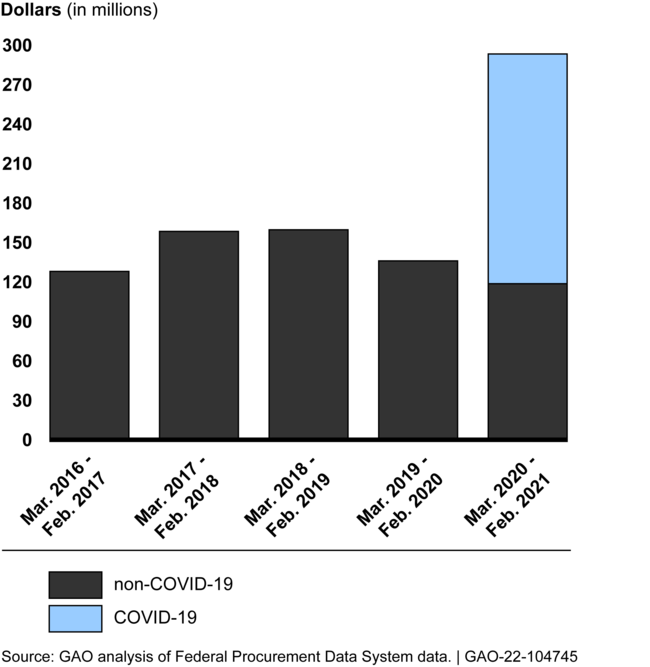COVID-19 Contracting: Indian Health Service Used Flexibilities to Meet Increased Medical Supply Needs
Fast Facts
The Indian Health Service provides health care to over 2 million American Indians and Alaska Natives. These groups have been disproportionately vulnerable to negative outcomes from COVID-19.
Despite facing an unprecedented demand for medical supplies, IHS was able to acquire necessary products (including personal protective equipment and lab supplies) from a variety of vendors during the pandemic.
However, we found that IHS's contracting officials did not notice some supplies were delivered late. IHS began taking steps to better track products in 2020—including obtaining new software to improve contractor oversight.

Highlights
Why This Matters
The Indian Health Service (IHS) serves over 2 million American Indians and Alaska Natives. These groups have been disproportionately vulnerable to negative outcomes from COVID-19. During emergencies, federal contracting staff face pressure to work quickly to meet increased needs. We examined some of IHS's COVID-related contracts to see how the agency's efforts fared.
Key Takeaways
Despite facing challenges, including unprecedented demand for medical supplies, IHS was able to acquire needed products from a variety of vendors. IHS contract obligations for products, excluding prescription drugs, increased substantially during COVID-19 to address emergent needs for additional personal protective equipment, lab supplies, and more. Using emergency contracting flexibilities available under federal regulation, IHS
bought personal protective equipment and other medical products in bulk
awarded contracts noncompetitively
used streamlined procedures for higher dollar contracts to obtain medical supplies faster
However, we found that IHS contracting officers did not notice that some COVID-related supplies were delivered late. Officials attributed this oversight to the spike in volume as well as the urgency of procurements during a pandemic.
Contracting officers are responsible for ensuring the terms of a contract are met—under normal circumstances and in emergency acquisitions. IHS officials told us that they began taking intermediate steps to improve tracking of products during 2020; the agency is currently obtaining new software to improve contractor oversight.
IHS Contract Obligations Increased Substantially Due to COVID-19

How GAO Did This Study
We analyzed relevant federal procurement data through June 30, 2021. We also reviewed four contracts—covering about 1/4 of obligations in IHS's largest product category (medical and surgical instruments, equipment, and supplies). We also interviewed IHS contracting officials.
For more information, contact Marie A. Mak at (202) 512-4841 or makm@gao.gov.
